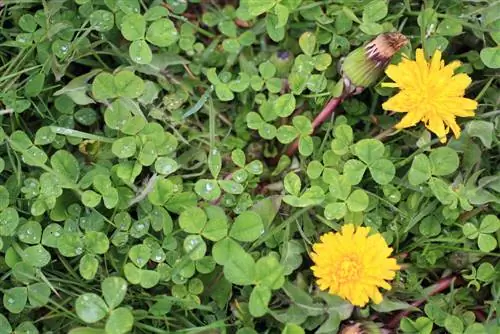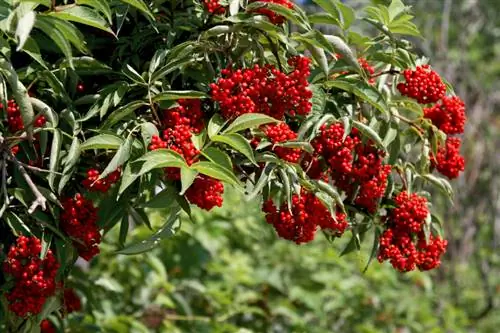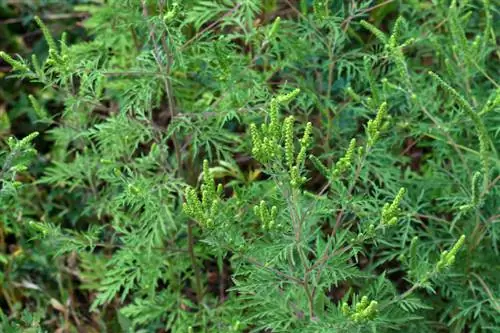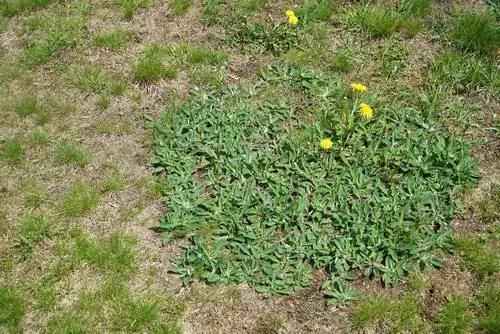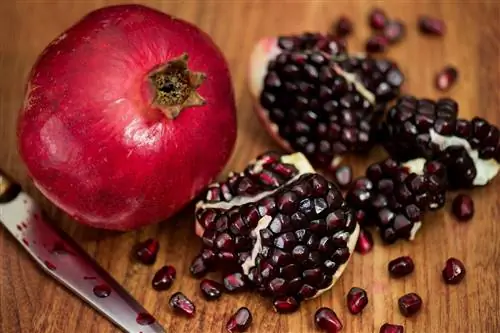- Author admin leonars@hobbygardeners.com.
- Public 2023-12-16 16:46.
- Last modified 2025-01-23 11:22.
For many hobby gardeners, clover is just an annoying weed. In reality, it likes to spread quickly, but is very frugal. It is not picky about the location and grows reliably even in dry conditions and lack of nutrients. This makes it actually the ideal replacement for lawn. It is also very valuable from an ecological point of view with its nectar-rich flowers, which provide plenty of food for bees and other pollinating insects. Maybe you're thinking about using it as a ground cover? If you still don't want to miss out on your green lawn, you can find out here how you can regulate clover growth in a natural and environmentally friendly way.
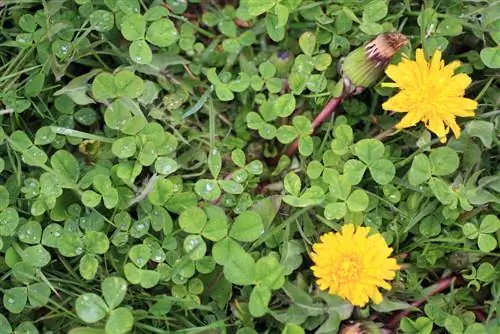
Why is clover in the lawn not just a weed?
Clover is a resilient and ecologically valuable ground cover. To check, you can scarify clover areas, cut off stands and fertilize the lawn regularly. Avoid chemical weed killers and consider using clover as a sustainable lawn alternative.
Why does clover spread so quickly?
Clover forms large carpets but remains very low. This means that the lawn mower blades do not touch the plant and the clover can spread unhindered through the greenery via runners. It can also overgrow bed and gravel areas in a very short time.
Clover improves the soil. It does not need any fertilizer, because the plant essentially produces its own nitrogen fertilizer through the symbiosis with special nodule bacteria. The roots of clover also loosen the soil. The grasses that are less well supplied are often pushed back.
Reduce clover in the lawn
However, clover can be suppressed in the lawn:
- Drive over the clover areas several times in lengthways and crossways with a scarifier (€118.00 on Amazon). This will cut the runners and allow you to collect the clover nests.
- Larger crops should be cut flat with a spade. Fill the resulting hollows with topsoil and sow fresh lawn.
- It is important to keep the young grasses well moist and to fertilize the entire lawn regularly to protect against weeds.
Avoid chemical weed killers
Special weed killers promise to only destroy weeds, but to spare grasses. However, you still have to remove the weeds manually afterwards. As a result, the preparations do not really make work easier and also pose major risks for the environment.
Tip
Just let the clover grow in your lawn! There are many ecological reasons for clover as an alternative to lawn. This also saves you the constant effort of removing clover plants and reseeding lawns. A combination of clover and grass can be particularly beneficial: for example, white clover enriches the soil with nitrogen, which benefits the surrounding plants. However, families with young children should exercise caution once the clover begins to bloom. Clover is a pasture for bees and the stinging insects can pose a danger when children play on the lawn. Here it is advisable to mow the clover lawn weekly so that it does not start to bloom.

